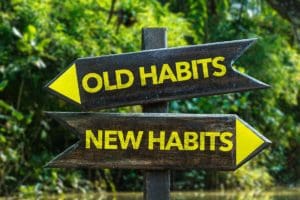The Best Outpatient Rehab in Washington D.C.
Here at the Freedom Center, we believe that drug & alcohol treatment can be both effective and convenient. Our flexible outpatient addiction rehabilitation program allows you to recover on your terms with all of the benefits of rehab (and without the 24/7 surveillance).
Our Washington D.C. rehab program involves scheduled visits to psychiatric treatment, medical treatment, addiction counselor, and group and individual therapy. When not undergoing a treatment session, our patients have the freedom to go to work, visit loved ones, and even reside at the place of their choosing.
Why Choose Outpatient Drug & Alcohol Treatment?
A study shows that the more outpatient therapy one goes to, the more likely they are to stay clean and sober. The advantages of going to an outpatient rehab facility include:
- Affordable: Outpatient doesn’t require staying onsite at a facility which is why it is only a fraction of the cost of inpatient treatment. This is ideal for patients who are paying for rehab out of pocket.
- Flexible: Get treatment that works around your schedule. Outpatient is a great option for those who have family duties or can’t take an extended leave of absence from their job.
- Familiar: Having access to your support system can be a tremendous benefit during the recovery process. Further, it helps to have loved ones nearby who can help with babysitting children or help with transport from treatment.
Is Outpatient Treatment Right For Me?
Outpatient treatment allows for much greater independence during the recovery process. While many patients enjoy that they can get treatment for their drug or alcohol addiction with minimal disruption to their daily lives, it requires serious dedication and discipline to be successful. The best candidates for outpatient addiction treatment are those that:
- Have previously undergone addiction treatment and are familiar with the process
- Are only suffering from mild to moderate addiction (do not require intensive care services such as detox)
- Are downgrading from intensive care and are in the maintenance stage of addiction recovery
- Don’t keep in touch/have access to places or people that encourage substance abuse
Types of Outpatient Drug & Alcohol Treatment Programs
There are several different kinds of outpatient rehab treatment options patients can choose from:
- Partial hospitalization programs (PHP)
- Intensive outpatient programs (IOP)
- Outpatient programs (OP)
The primary difference between each is the length of time required for each. All the programs are designed to encourage recovery without constant supervision, however, the exact structure will vary based on the treatment’s level of intensity.
Partial Hospitalization Program (PHP)
A happy medium between the most intense level of care (inpatient) and less restrictive outpatient, partial hospitalization provides the best of both worlds. Despite what the name might suggest, this type of drug & alcohol addiction treatment does not require an overnight stay at a rehab facility. Instead, this program is achieved through frequent and longer-lasting sessions averaging about 4-5 times a week.
This is an ideal option for those with severe levels of addiction that might require medical intervention, but are not in such immediate danger that they require round-the-clock monitoring.
Intensive Outpatient Program (IOP)
IOP treatment is a step down in intensity from PHP and is sometimes referred to as “part-time rehab”. At The Freedom Center, patients attend therapy and counseling meetings up to 3 times a week for a few hours per session. When they are not at meetings, they are free to reside at home and return to their daily schedule.
The intensive outpatient program focuses on the psychological part of addiction recovery and is tailored to the needs of the individual. There are a variety of educational programs as well as therapeutic ones designed to promote healthier coping mechanisms with an emphasis on relapse prevention.
Outpatient Program (OP)
Also referred to as “standard outpatient” this is the least intense of all addiction treatment options. These patients have the lowest hourly requirements for therapy or counseling sessions and the least interruption to their usual schedule. Outpatient is usually a part of maintenance and therefore can last from 90 days to over a year.
Aftercare & Relapse Prevention
The Freedom Center aftercare program offers daily therapy and addiction education at the end of the day for people who are busy with daily living.
There is also the option to live off-campus from the outpatient facility and stay in a halfway house with other addicts in recovery. The Freedom Center helps patients find sober living homes as well. This serves the purpose of giving a stable and sober living situation to a patient as they go through recovery. This is commonly referred to as a “halfway house.”
Can I Use Insurance to Pay For Rehab?
Yes, we want you to focus on recovery – not stress about expenses. To help cover the cost of rehab we accept many popular insurance plans including Medicare and Medicaid.
Questions About Drug & Alcohol Treatment Centers?

If you would like more information on our treatment programs, how we intake our patients, how much rehab costs, or anything else related to outpatient rehab, we have answers.
Call The Freedom Center at any time using the number (888) 530-5023. If you’d prefer for us to call you, you can enter your phone number on our website.
Directions from Washington, DC to Our Drug & Alcohol Recovery Program
Washington DC is a very busy city with 693,972 people walking around and taking public transportation to work. Getting out of the hustle and bustle of the city for therapy can be a really relaxing way to treat drug or alcohol addiction.
Washington DC is:
- 34 minutes away
- 20.9 miles away
*This time varies based on the flow of traffic going in and out of the city on any given day.
There is also the option of taking the metro as a form of public transportation. A MARC train takes you straight to a Germantown train stop for $5-10. From the train station, The Freedom Center is about 12 minutes away and bus routes can get you there.
If you do not have access to a car, The Freedom Center staff are happy to work out a commuting plan for you to get to the rehab facility.
Local Addiction Recovery Resources for Washington D.C.
Alcoholics Anonymous
- 7930 Georgia Ave, Silver Spring, MD 20910, USA
- https://www.aa.org/
- +1 301-587-6191
- Direction: https://goo.gl/maps/QQEgCzh3qVeptvji7
Al-Anon & Alateen
- 278 Carroll St NW, Washington, DC 20012, USA
- http://www.al-anon-alateen-dcmd.org/
- +1 202-635-2023
- Direction: https://goo.gl/maps/QY98PC3cjrhiJNUr6
Washington DC VA Medical Center
- 50 Irving St NW, Washington, DC 20422, USA
- https://www.washingtondc.va.gov/
- +1 202-745-8000
- Direction: https://goo.gl/maps/XMLQuFyioeU3RP2L9
Psychiatric Institute of Washington
- 4228 Wisconsin Ave NW, Washington, DC 20016, USA
- https://psychinstitute.com/
- +1 202-885-5600
- Direction: https://goo.gl/maps/8zDCkjkm1GfqivMm8
Washington DC Police Department
- 300 Indiana Ave NW, Washington, DC 20001, USA
- https://mpdc.dc.gov/
- +1 202-727-9099
- Direction: https://goo.gl/maps/sicugoFt3wmZDPDi6
Alcohol Recovery With A.A.

Outpatient Alcohol Recovery at The Freedom Center follows the Alcoholics Anonymous program (AA).
AA originated in 1935 when a recovered alcoholic wanted to bring people together to support each other.
The program follows what is known as the 12 Step program. Each of the 12 steps is a small goal that brings an alcoholic closer to sobriety and mental awareness.
Past and current alcoholics go to meetings to talk about the 12 steps and their progress in addiction treatment. There are daily meetings multiple times a day in which members discuss their progress with the 12 steps.
If you can’t make one, there will be other meeting times during the day and evening.
Drug Recovery With the 12 Steps
After the foundation of Alcoholics Anonymous, a recovered drug addict decided to create a similar program for drug addiction called Narcotics Anonymous (NA).
A narcotic is any drug that alters your brain function. These can be prescription drugs or illicit drugs.
NA meetings are a safe space to discuss progress with the 12 Steps and relapse prevention. Past addicts can come to give advice and share stories.





























